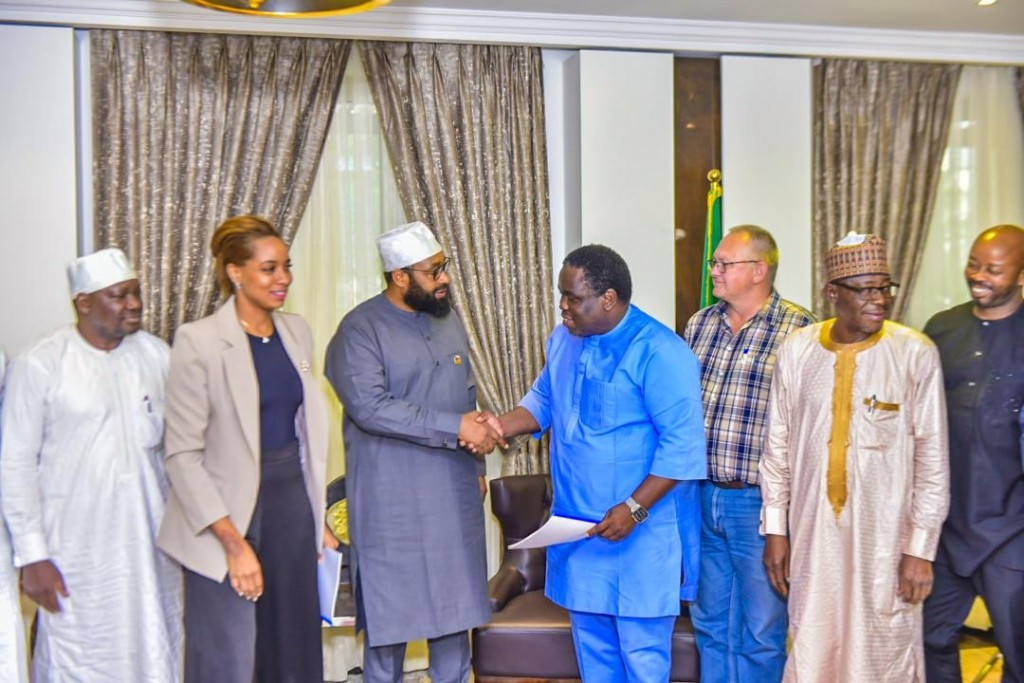
DAY TWO
4.3 GRIEVANCE REDRESS MECHANISM (GRM) – Delivered by Oladipupo Sofowora, NGF FRILIA SME
The presentation dwelt on the concept that would address complaints, disputes, or grievances that may arise from various stakeholders involved in agricultural investments, particularly those related to land use, ownership, or management.
It laid emphasis on some key steps to be adopted (in line with FRILIA component) to attain a successful GRM in States based on peculiarities. A sample GRM toolkit for Kaduna and Ogun was presented for peer learning purposes.
4.4 COMMUNITY NEEDS ASSESSMENT IN RESPONSIBLE LAND-BASED AGRICULTURE
(Delivered by Oladipupo Sofowora, NGF FRILIA SME)
The presentation focused on the need for states to adopt the Community Need Assessment (CNA) approach, which would help to identify the needs, aspirations, and potential concerns of the local communities before implementation of any land-based agricultural Investment.
He also highlighted the procedures, framework, best practices, strategies and challenges of the Community Needs Assessment.
4.5 ENVIRONMENTAL AND SOCIAL RISK MANAGEMENT (ESRM)
(Delivered by Tiwalade Adeniyi, NGF FRILIA SME)
He explained the rationale of ESRM in FRILIA-related investment that would ensure environmental & social impact, risks, and opportunities associated with any FRILIA project identified, ranked, and mitigated/enhanced in line with regulations and globally accepted best practices.
4.6 LAND ACCESS, EASEMENT & INVOLUNTARY RESETTLEMENT MANAGEMENT
(Delivered by: Andrew Smith, NGF FRILIA SME)
The presentation centered on scenarios that require application of FRILIA principles to resolve/ manage and mitigate the emergence of crisis and that; there is no ‘one size fits all’ solution on Land Access, Easement & Involuntary Resettlement Management.
Therefore, every investment invites unique dialogue with target stakeholders comprising of the investor, the state/LG and the concerned community to pursue equitable outcomes that will ensure that, the investment benefits all parties.
4.7 VALUATION, COMPENSATION AND NEGOTIATING FAIR CONTRACTS
(Delivered by: Darryl Vhugen, World Bank)
He highlighted major out-grower models and strategies used in agricultural investments, particularly in land-intensive sectors, to promote responsible and inclusive practices.
5.0 NEXT STEPS FOR STATES
1. Inauguration of multi-stakeholder FRILIA Technical Committee. (Take note of the DLI requirement)
2. Development and approval of FRILIA implementation work plan.
3. The State technical committee to develop FRILLA Toolkits.
6.0 RECOMMENDATION
1. The need to hold regular meetings of the State Enabling Business Environment Council (SEBEC), SABER Steering Committee and FRILIA Committees (Steering / Technical).
2. Inauguration of Multi-stakeholder FRILIA Committees and communication to H.E on the FRILIA program, its importance and derivable benefits to the State.
3. The FRILIA technical team should seek for technical support from NGF / Resource Persons to facilitate the attainment of the outlined deliverables( toolkits, GRM and selection of a pilot project).
7.0 CONCLUSSION
8.0 COMMUNIQUE
To be forwarded to us from Federal Ministry of Industry, Trade and Investment
9.0 RECOMMENDATION
i. The state government to sustain the attendance of this workshop as may be organized periodically in order take advantage of all discussions/presentation/decisions for economic growth and development of the state.
ii. The state to sustain the existing synergy between the Federal MDAS and state for an improved flow of information on investment related issues.
iii. The state government through the NSIPA to organized periodic sensitization on IPPA related issues and other investment related activities.
iv. Niger State Government is expected to host next workshop in 2025.
v. NSIPA to participate /carried along in outbound mission’s /investment drive of the State in order to consolidate on wooing investors into the state.
vi. Support sustainable agriculture and environmental practices
vii. Ensure transparency and accountability
viii. Provide fair compensation and support for displaced communities
ix. Prioritize local food security and livelihoods
x. Encourage multi-stakeholder collaboration and knowledge sharing
Therefore, it is aimed at promoting responsible agricultural investments that balances economic, social and environmental considerations, and most importantly prioritizes the rights and well-being of local communities and stakeholders.
Emmanuel O. Nwogwugwu
Head, Investment Promotion & Research
Niger State Investment Promotion Agency